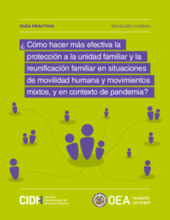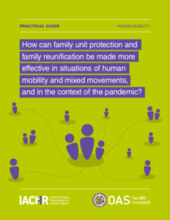This page contains documents and other resources related to children's care in the Americas. Browse resources by region, country, or category.
Displaying 451 - 460 of 3191
The U.S. Supreme Court has ruled that "a tax-payer funded Catholic foster agency in Philadelphia was free to turn away same-sex couples as foster parents on religious grounds."
The recent discovery of the unmarked graves of 215 children at the Kamloops Indian Residential School in British Columbia, Canada has prompted the question: "Are there similar burial sites at U.S. Indian boarding schools?," says this article from Indian Country Today.
This article from Express Informer describes the intergenerational impacts of the trauma experienced by Indigenous children in Canada's residential schools.
"The discovery of an unmarked grave holding the remains of more than 200 Indigenous children, including one possibly as young as age 3, has shaken Canada," says this article from the Christian Science Monitor.
"Indigenous Canadians are mourning the loss of 215 children whose remains were found in a mass grave at a former residential school in British Columbia," says this article from KUOW.
Article from TIME reports fewer Americans are adopting internationally.
la Comisión Interamericana presenta la guía ¿Cómo hacer más
efectiva la protección a la unidad familiar y reunificar a la familia en los procedimientos migratorios y de protección en contexto de pandemia? en la que
se analizan los estándares interamericanos aplicables a la luz de las obligaciones
internacionales de los Estados y propone recomendaciones para garantizar la unidad
familiar y la reunificación familiar así como prevenir los riesgos de separación y minimizar los impactos en los casos de separación familiar. Asimismo, la implementación
de las garantías de la reunificación familiar requiere muchas veces de una estrategia idónea de acceso a mecanismos de regularización documental, así como de condiciones seguras de viaje y movilidad a través de las fronteras nacionales. Esto es especialmente benéfico para familias que se han visto separadas de manera forzada o por
razones asociadas a la movilidad humana.
he Inter-American Commission on Human Rights (IACHR) has issued, in collaboration with the UN Refugee Agency (UNHCR), a practical guide on how to protect family unity and reunification more effectively in human mobility and mixed movement contexts during the ongoing COVID-19 pandemic. This publication is part of a series of guides issued by the IACHR to address the impact of the pandemic on human rights. The guide makes recommendations to States, so they may protect family unity, prevent separation, and take any necessary measures to ensure the reunification of families who may have been separated in contexts associated with human mobility.
"Unmarked graves containing the remains of 215 children have been found in Canada at a former residential school set up to assimilate indigenous people," says this article from BBC News.
"The discovery of the remains of 215 Indigenous children at a former residential school in British Columbia prompted outpourings of grief and questions as efforts to identify the students began," says this article from the Washington Post.



